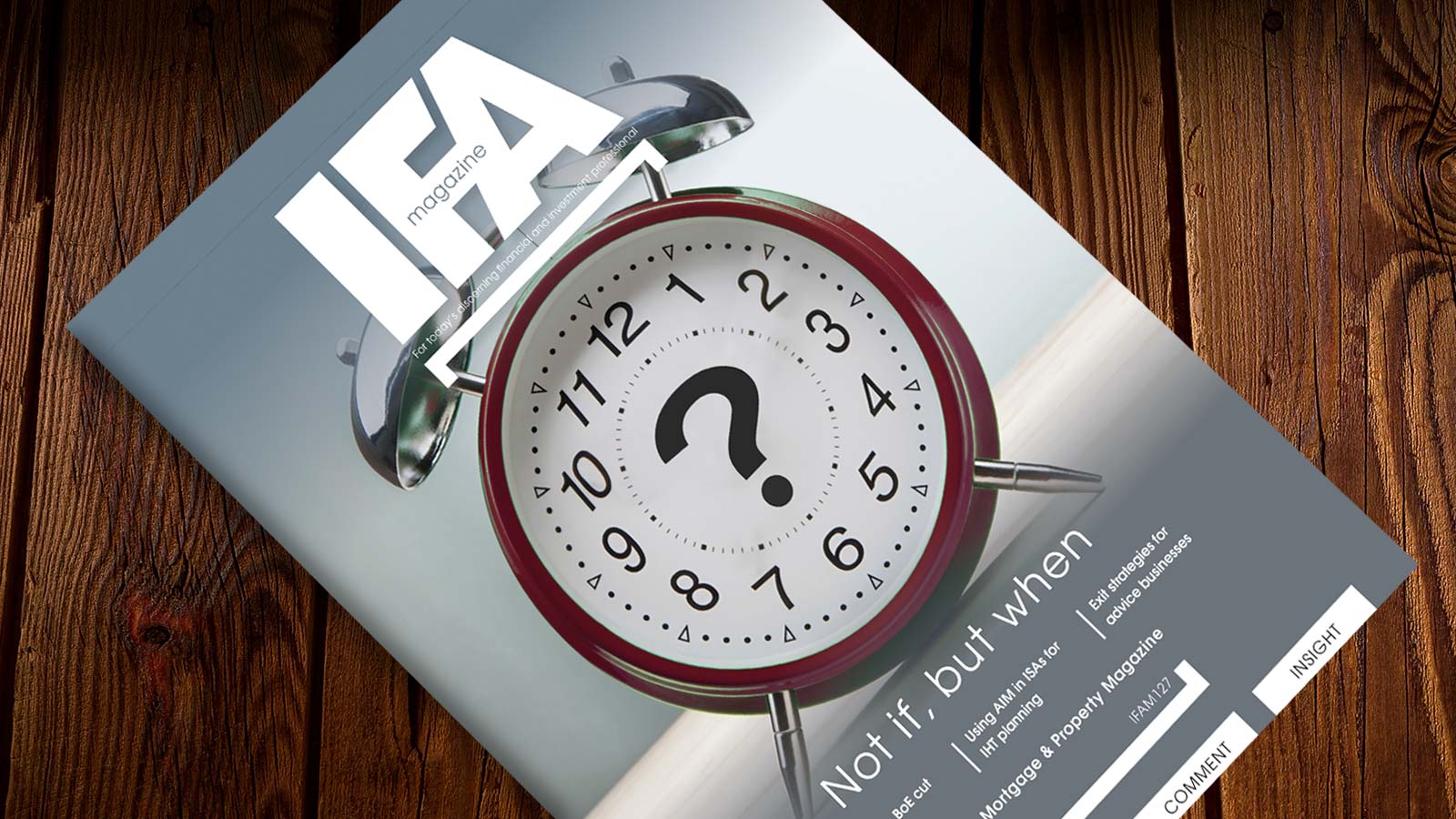This morning Ofgem announced that the energy price cap will increase to £3,549 from 1 October – pointing to a tough winter ahead. Following on from this, finance experts share their thoughts with IFA Magazine.
Laura Suter, head of personal finance at AJ Bell, says:
“After all the estimations, predictions and finger-in-the-air sums we finally know the extent of the energy price hike everyone is going to endure in October. The price cap has risen to £3,549 for everyone paying by direct debit, a whopping 178% increase on last October’s average annual bill of £1,277. Last October we saw an increase of £139 in the average annual bill as a result of the price cap, but this year’s jump is more than 11 times higher at £1,578.
“There’s no doubt that for many households a bleak winter is ahead – particularly with another price hike on the horizon in January after the regulator pushed ahead with its controversial reformed price cap. Many households can’t afford energy bills at their current level, let alone bills that are thousands of pounds a year more.
“With average annual energy bills at £3,549 that means energy costs are well over a third of the annual state pension of £9,628. Even pensioners getting the full government support available to them of £1,500, are still facing paying more than £2,000 for their energy bills, which many simply won’t be able to afford.
“It’s the same story for disabled households, who will be entitled to maximum support of £1,350, but will typically have far higher than average energy bills due to energy-intensive specialist equipment and being at home more.
“Frustratingly for those struggling with energy costs there are no easy hacks or tricks to significantly cut their bills – advice to turn off chargers, or devices not in use, will save pennies and is insulting to families facing such staggering price increases. What’s more, with standing charges having risen slightly, it now costs £5.18 per week before you’ve even used a unit of energy. The only option is to cut energy usage as much as possible and hope for further Government support for those struggling the most.”
Richard Neudegg, director of regulation at Uswitch, comments:
“Ofgem has rubber-stamped the letters from suppliers that will now start landing on millions of doorsteps informing customers of exactly how much they’ll need to pay for their energy as we go into winter.
“Households will face average monthly charges of £362 based on expected usage – almost three times more than the same period in 2021.
“Even after the £66 monthly discount currently on the table from the Government, families will need to find on average an extra £169 per month compared to last year, when many household budgets are already maxed out.
“The energy crisis we face this winter must never be allowed to happen again. This is a failure of the wholesale market and, until that is resolved, we won’t have a long-term solution.
“The Government has made it clear that it will not intervene further until a new Prime Minister is confirmed. As concerning as this is, there does seem to be consensus that more support will be made available, but it remains to be seen if it will be enough.
“Until the Government acts, which we expect will be in the coming weeks, consumers are being held in a cost-of-living limbo.”
Sam North, personal finance expert at eToro, comments:
“Today’s energy price cap increase will be devastating for millions of families who are already struggling during what is the worst cost-of-living crisis in a generation.
“It means that from October gas and electricity will account for more than 11% of the average family’s after-tax income, nearly three times more than they did in April. There is no getting away from the fact that some people will struggle to keep their homes light and warm this winter.
“What’s worse is that the cost of energy has not risen in isolation: mortgage rates are at their highest levels in a decade, real wages are falling and the price of the weekly grocery shop has soared.
“Simply put, it means that we are about to become much poorer as a nation than we have been for years unless the Government intervenes to alleviate some of the pressure.”
Kevin Pratt, energy expert at Forbes Advisor, warns:
“The blunt truth is that monthly energy costs of nearly £300 a month are simply unaffordable for low and middle income families at a time when inflation across the economy is running at 10.1%. And as we know, there’s worse to come in January, when the cap is expected to hurtle past £4,200.
“With millions of households facing fuel poverty – when energy costs exceed 10% of disposable income – it is time for urgent government intervention in what is clearly a market in deep crisis. This needs to happen now, well in advance of winter, so that people avoid the prospect of not being able to heat their homes as temperatures drop.
“Whether the action takes the form of government-backed loans that would enable suppliers to freeze prices at today’s level, or the introduction of a subsidised social tariff for financially vulnerable households, it needs to happen before October and must be a priority for the new Prime Minister when he or she takes office on 5 September.
“In addition, we need a radical rethink of how we manage our energy needs on a national level. Wholesale gas prices won’t fall any time soon, so we need a long-term strategy to develop reliable and affordable alternatives, including nuclear power. And we need to make our housing stock, new and existing, more energy efficient so that we reduce consumption.”
Richard Pike, Chief Sales and Marketing Officer at Phoebus Software Limited says:
“The increase of the fuel price cap to £3,549 is not unexpected, but will undoubtedly concern many families. Bearing in mind that a “typical household” is a three of four bedroom house with three of four inhabitants, this will affect a lot of mortgage borrowers. Combine this with rising rates for those on variable products, plus the surge of fixed rate expirations expected in the next six months, many will only be able to fix again on higher rates than their existing products. Lenders need to start being very proactive on offering more high-level generic budget planning and guidance on keeping household expenditure to a minimum. Of course this goes beyond the norm in terms of pro-active arrears management, but investment in this assistance now will only strengthen borrower relationships for the future and highlight any potential arrears issues sooner rather than later.
“Realistically, there doesn’t appear to be any let up on the squeeze of income to pay for priority bills for most households for the next twelve to eighteen months. Utilising specialist portfolio analytics from companies such as MIAC acadametrics should add real value to many lenders. In addition, investment in automating standard arrears processes so that time can be spent with those borrowers that really require it.”
Samuel Mather-Holgate, Independent Financial Advisor at Mather and Murray Financial, adds:
“I am really worried about the energy market in the UK. Prices are up by 80% or an average of over £130 per month but the UK Government is spending less on support than our European neighbours like Germany, Italy and France. We need much more help. For some low and medium income families, finding an extra £130 each month will be impossible and, as we know, things are going to get worse in the winter. The new Prime Minister needs to make this their number one priority, by immediately increasing the £400 rebate.”
Lewis Shaw, Founder & Mortgage Expert at Shaw Financial Services, concludes:
“Welcome to our winter of discontent. We are utterly rudderless in a storm with nobody on deck taking charge. This has all the hallmarks of serious civil unrest if we’re not careful. People are already stretched beyond breaking point, which will be the last straw. The worst thing is that even an emergency budget won’t be able to tackle the crisis due to the time it takes to get through Parliament and the OBR. With further base rate increases to contend with and another price cap hike in January, it’s fair to say our economy is broken, and we’re teetering on the brink.”
















